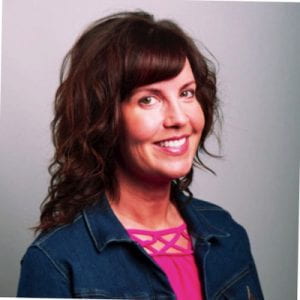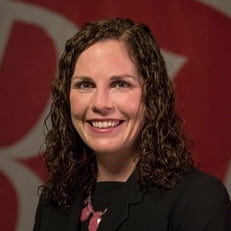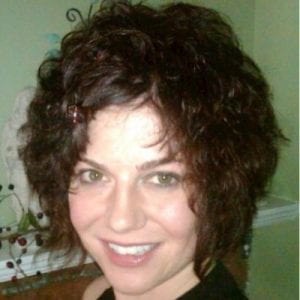During a recent career development panel discussion for our HRM master’s students, we heard some great advice from three of our panelists who lead HR organizations.
Heidi Ferriman, an alumna of the Corporate and Organizational Communication master’s program, is Senior Vice President, People & Corporate Affairs at Save-On-Foods, Western Canada’s largest grocery retailer, with 184 stores and more than 22,000 employees. Aileen Lambert, also an alumna, is Vice President, Employee Relations at Brown Brothers Harriman, a privately-held financial institution with 5,000 employees operating from 17 locations throughout North America, Europe and Asia. Susan Uhl-Miller, MHA, MBA, SPHR, is Associate Vice President, Talent Management at Northeastern University. Are you preparing for interviews? Wondering how to ensure that an organization’s values align with your own? Interested in learning what the in-demand skills are for HR job candidates? Here’s what our panelists had to say.
How to prepare for – often virtual – interviews
Aileen Lambert: One advantage of a virtual interview is that you can have your speaking points right there by your computer monitor – basically your elevator pitch, so if you get tripped up, or you’re nervous, you can quickly take a look at your notes. You should also have a list of questions that you can weave into the interview: How people in the organization communicate with each other, key aspects of the culture, how employees have responded to the pandemic. Heidi Ferriman: For positions in our store locations, we continue to rely on face-to-face interviews. But for other roles, we’re doing virtual interviews. Our recruiting team tells me they actually have more productive interviews via Zoom – the conversation is somehow more authentic. The key is be prepared and to relax as much as possible in your own space. Just be yourself. Susan Uhl-Miller: We absolutely take into account the fact that glitchy things can happen when interviews are virtual – so try not to worry about that. I know I’m going to use the word intentionality about 5000 times today, but I think there’s also greater intentionality in how we approach virtual interviews, the questions we ask. We spend more time talking about the culture of the organization, what it’s like on a typical day. And don’t be shy about inserting yourself into the conversation and probing into those areas that are really important to you.
How we bring new employees into our organizations
Heidi Ferriman: Our organization has a very strong culture and many long-time employees. At the same time, we know we have to hire people with new kinds of expertise to compete effectively. A critical component of our culture is learning and development. We encourage employees to gain new skills, to continue their education because we want them to grow and advance within the organization. Aileen Lambert: Our company also has a very distinctive culture based – we’ve been around for over 200 years! We value that history. At the same time, we make it a priority to help new employees understand the cultural norms and get involved with our affinity networks so they feel part of the culture.
Susan Uhl-Miller: The pandemic has made us rethink the way we onboard new employees. Instead of simply having someone check the box 50 times, we are more intentional in educating new hires about us and about our culture.
How you can learn whether an organization is committed to diversity, equity, and inclusion
Susan Uhl-Miller: Organizations that are deeply committed to diversity are really proud of that. They put information out on their websites, so that’s a good place to start. That applies to the interview process as well. Organizations that are deeply passionate about this work and truly seek out diverse talent will make that commitment evident during the interview process. Heidi Ferriman: The interviewee should ask about an organization’s diversity and inclusion strategy, how long it has been in place for and, most importantly, what progress they have made since they’ve implemented the strategy. Community involvement is also very important to us – so ask what the organization is doing in that respect. Aileen Lambert: I agree, the website is a first good indicator of how the organization is approaching DEI issues. But it also can simply be window dressing. So, it’s very telling if the interviewer is able to articulate what the organization is doing. It’s a sign that the strategy is being communicated to and embraced by employees.
What skills are hiring managers looking for in candidates for their HR teams
Aileen Lambert: I’m looking for someone who can demonstrate the ‘why’ behind the interest in a particular job. I’ll admit it’s like fingernails across the chalkboard if the response is “I like people.” They need to show they have done some reading about human resource trends and, ideally, have completed an internship or an experiential project that addresses a human resource challenge. We also are looking for new members of the team to have an understanding of people analytics – that’s a very big trend across many sectors. Heidi Ferriman: We’re seeking employees who can work as part of a team, who have a commitment to customer service – both internal and external customers. Communication skills are high on my list, as well as resiliency, that ability to recover from a setback or tough situations and get back to work again. Those are the top four so-called soft skills the members of our HR team need to be successful. Susan Uhl-Miller: We’re looking for utility players who are willing to roll up their sleeves and take on something that perhaps they haven’t done before and apply problem-solving skills. Workforce analytics is becoming a key skill set, the ability to interpret data and communicate what the data mean. As organizational structures become flatter, it requires everybody pulling together in the same direction, and I think a collective willingness for people to just grab on to each other and move forward in a collaborative way. Posted by Carl Zangerl, Faculty


